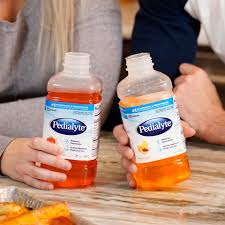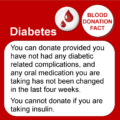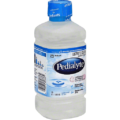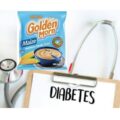Today, more than 30 million Americans have been diagnosed with diabetes. Worldwide, more than 422 million people have diabetes. Diabetes is a serious condition that causes higher than normal blood sugar levels. Diabetes occurs when your body cannot make or effectively use its own insulin, a hormone made by special cells in the pancreas called islets (eye-lets). Insulin serves as a “key” to open your cells, to allow the sugar (glucose) from the food you eat to enter. Then, your body uses that glucose for energy.
But with diabetes, several major things can go wrong to cause diabetes. Type 1 and type 2 diabetes are the most common forms of the disease, but there are also other kinds, such as gestational diabetes, which occurs during pregnancy, as well as other forms.
What is Type 1 Diabetes?
Type 1 diabetes, previously known as juvenile diabetes, is the most severe form of the disease. About 5% of people who have diabetes have type 1 diabetes, or insulin-dependent diabetes. Type 1 diabetes has also been called juvenile diabetes because it usually develops in children and teenagers. But people of all ages can develop type 1 diabetes.
In type 1 diabetes, the body’s immune system attacks the insulin-producing islet cells in the pancreas. The islet cells sense glucose in the blood and produce the right amount of insulin to normalize blood sugars. This attack on the body’s own cells is known as autoimmune disease. Scientists are not sure why the autoimmune attack happens.
But once the insulin-producing cells are destroyed, a person can no longer produce their own insulin. Without insulin, there is no “key.” So, the sugar stays in the blood and builds up. As a result, the body’s cells starve. And, if left untreated, high blood sugar levels can damage eyes, kidneys, nerves, and the heart, and can also lead to coma and death.
What are the Warning Signs of Type 1 Diabetes?
The onset of type 1 diabetes happens very quickly. The following symptoms may appear suddenly and are too severe to overlook:
- Increased thirst
- Increased urination (bed-wetting may occur in children who have already been toilet trained)
- Rapid and unexplained weight loss
- Extreme hunger
- Extreme weakness or fatigue
- Unusual irritability
- Blurred vision
- Nausea, vomiting and abdominal pain
- Unpleasant breath odor
- Itchy skin
What is Type 2 Diabetes?
The most common form of diabetes is called type 2 diabetes, or non-insulin dependent diabetes. About 90% of people with diabetes have type 2. Type 2 diabetes is also called adult onset diabetes, since it typically develops after age 35. However, a growing number of younger people are now developing type 2 diabetes.
People with type 2 diabetes are able to produce some of their own insulin. Often, it’s not enough. And sometimes, the insulin will try to serve as the “key” to open the body’s cells, to allow the glucose to enter. But the key won’t work. The cells won’t open. This is called insulin resistance. Type 2 diabetes is typically tied to people who are overweight with a sedentary lifestyle.
What are the Warning Signs of Type 2 Diabetes?
The symptoms of type 2 diabetes are similar to those of type 1 diabetes. But the onset of type 2 diabetes is usually slower and the symptoms are not as noticeable as those for type 1 diabetes. For these reasons, many people mistakenly overlook the warning signs. They also might think that the symptoms are the signs of other conditions, like aging, overworking or hot weather.
Is Pedialyte Good for Diabetics?
Pedialyte is an oral rehydration solution (ORS) used to help prevent or reverse dehydration in children. It contains water, sugar, and minerals, making it more effective than water at replacing fluids lost due to illness or excessive sweating. In 1994, the International Centre for Diarrheal Disease Research studied how an ORS like Pedialyte could benefit diabetics during a bout of diarrhea. Although ORS contains sugar, the study found that it was an effective and safe solution to reverse dehydration caused by diarrhea. ORS didn’t cause an unsafe increase in blood sugars, and patients using ORS recovered faster.
Who should NOT take this medication?
Oral rehydration solutions should not be taken by anyone who:
- is allergic to any of the ingredients of the medication
- has a blockage in the intestines or perforation (tear or hole) in the bowel
What side effects are possible with this medication?
There are no known side effects associated with this medication.
Are there any other precautions or warnings for this medication?
Before you begin using a medication, be sure to inform your doctor of any medical conditions or allergies you may have, any medications you are taking, whether you are pregnant or breast-feeding, and any other significant facts about your health. These factors may affect how you should use this medication.
Freezer pops: Freezer pops may change colour slightly when frozen and may temporarily colour the mouth.
Persistent diarrhea: If diarrhea does not improve within 24 hours after taking this medication, talk to your doctor or pharmacist.
Persistent vomiting: See your doctor before taking this medication if you cannot stop vomiting. Children with diarrhea, vomiting, and fever should see a doctor.
Powders: Oral rehydration powders should only be mixed with the specified amount of water to ensure that the amount of sugar and electrolyte in the solution is accurate.
What other drugs could interact with this medication?
Tell your doctor or prescriber about all prescription, over-the-counter (non-prescription), and herbal medications that you are taking. Also tell them about any supplements you take. Since caffeine, alcohol, the nicotine from cigarettes, or street drugs can affect the action of many medications, you should let your prescriber know if you use them. Depending on your specific circumstances, your doctor may want you to:
- stop taking one of the medications,
- change one of the medications to another,
- change how you are taking one or both of the medications, or
- leave everything as is.
When to see a doctor
Stomach problems sometimes do indicate a more serious problem. Prolonged vomiting puts you at risk for dehydration. Drinking small sips of water can help prevent dehydration. Go see a doctor if you are having trouble keeping water down for longer than six hours. You should also call your doctor if you experience nausea or stomach pain and discomfort for more than 48 hours.
If you notice that you are consistently having stomach troubles after eating certain foods or engaging in specific activities, talk to your doctor about your symptoms at your next visit. It may be nothing, but a quick trip to your family doctor can rule out Crohn’s disease, a food allergy, or any other concerns. READ Is Pedialyte Good For Upset Stomach and Vomiting?






